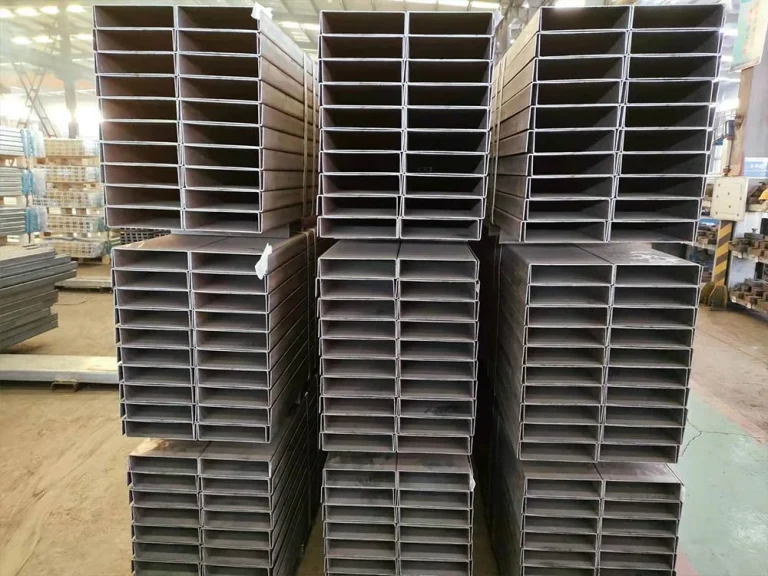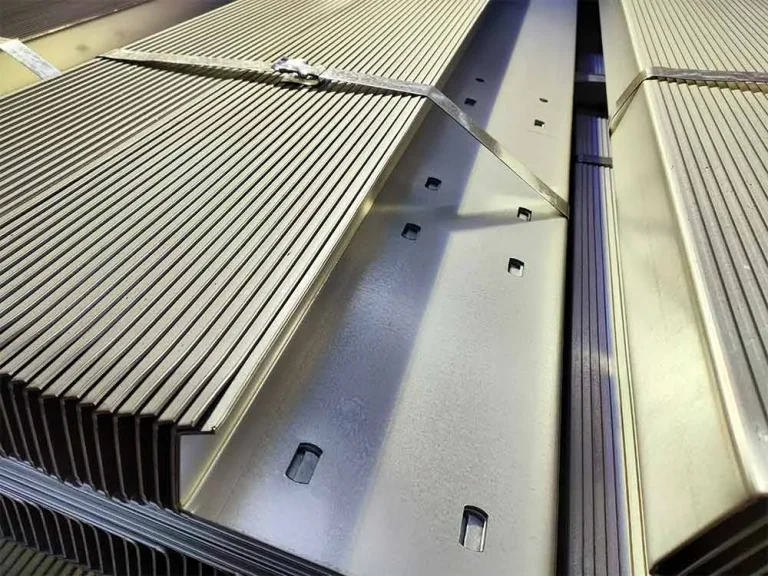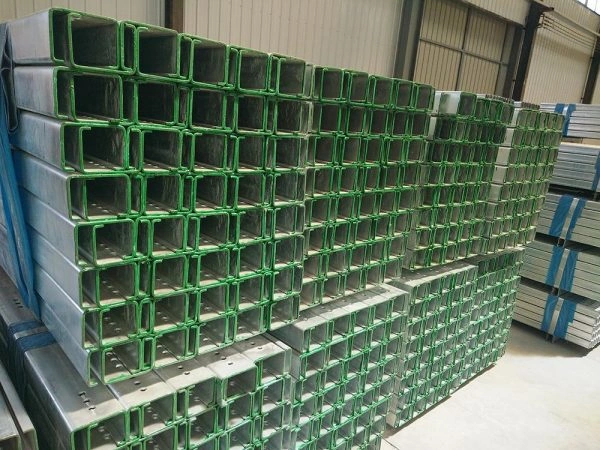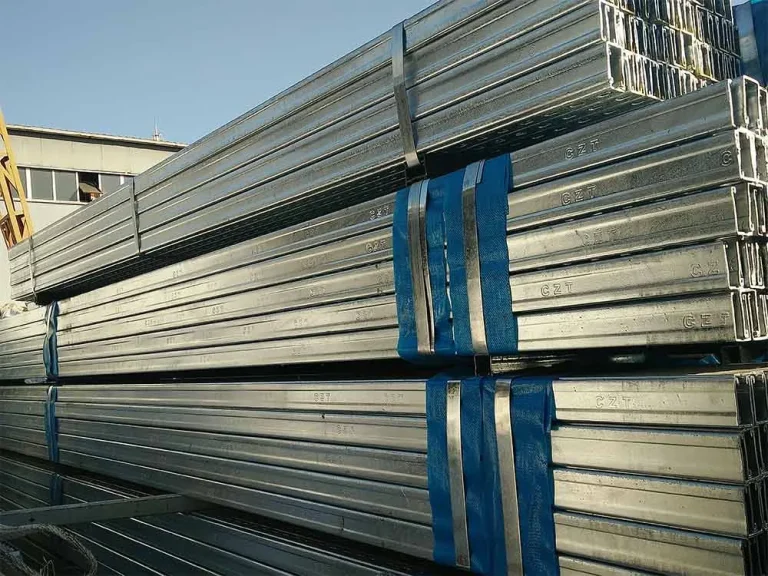현대 농업에서 강철 농장 창고는 단순한 건물 이상입니다.그들은’효율성을 높이고 오래 지속되고 녹색 관행을 지원하는 똑똑한 선택입니다.산업농업이 성장함에 따라 농부들은 강하고 유연한 구조를 필요로 합니다.강철 창고는 이러한 요구를 충족시키고 나무나 콘크리트와 같은 오래된 재료보다 이점을 제공합니다.이 기사는 왜 강철 농장 창고가 오늘의 최고의 선택이라는 것을 설명합니다’농장과 어떻게 농부들이 성공하도록 도와주는지
무엇이 강철 농장 산업산업 규모 농업에 이상적인가?
가혹한 농업 환경을 견디는 내구성
강철 농장 창고는 어려운 농장 조건을 처리하기 위해 만들어졌습니다.그들은 매일 극단적인 날씨, 무거운 기계 및 화학 물질에 직면합니다.그러나 강철은 강하다.나무나 직물과 달리, 그것은’t 트위스트, 크래크, 또는 t t t t t t t t t t t t t t t t t t t t t t t t t 회전하거나 t t t t t t t t t t t t t
H-Beam 강철그것의 “H”모양의 디자인은 이러한 창고의 중요한 부분입니다.그것은’다리와 높은 건물에서 사용되는 s 그것은 무거운 부하를 잘 운반하기 때문에.농장 창고의 경우, H-H H 농농장 창고는 바람, 비 등에 저항할 수 있는 고체한 프레임을 제공합니다.
화재, 해충 및 부식에 대한 저항
강철 창고는 농장을 화재와 해충으로부터 안전하게 유지합니다.termites and rats can’t 해를 직류 전기를 통한 강철.게다가, 그것은 또또한 또또또한 잘 또또한 또또또한 또또또한 또또한 또한 또한 또또한 또한 또한 또한 또한, 그것은 또또한강한 롤형 강철 조각인 Z 강철 채널은 종종 직류 전기 또는 분말 코팅과 같은 방강 강 층으로 코팅됩니다.이것은 습기나 화학 무거운 공간에 비료를 저장하기에 완벽하게 만들어 수년간 창고를 견고하게 유지합니다.
전통적인 재료에 비해 최소 유지 보수
농부들은 철강 창고로 시간과 돈을 절약합니다.나무는 나무나 나나무에 대한 정기적인 치료가 필요합니다.콘크리트는 시간이 지남에 따라 깨질 수 있습니다.그러나 강철?그것은’s 다르다.C 모양의 강철은 가리고 강하고 사용하기 저렴합니다.이러한 특징은 수정과 교체가 적다는 것을 의미합니다.약간의 관심으로, 아연 전기를 통한 강철은 견고하게 유지되어 유지 보수 비용을 줄입니다.
강철 농장 창고는 어떻게 농장의 운영 효율성을 향상시킬 수 있습니까?
더 빠른 건설 타임라인, 다운타임 감소
농업에서는 시간이 중요하며, 특히 바쁜 시즌에 중요합니다.강철 강철 창고는 레이저 절단 기계와 같은 도구로 현장에서 만들어집니다.이러한 기계는 작은 주문에도 강철을 정확하게 절단합니다.이러한 이유로 농장에서 창고가 빠르게 올라갑니다.빠른 조립은 더 적은 방해를 의미하므로 농부들이 계속 일할 수 있습니다.
장비 및 저장소를 위한 유연한 내부 레이아웃
Steel’S 강도는 안쪽에 넓고 열린 공간을 가질 수 있습니다.지원 열이 방법을 차단하지 않습니다.이것은 농부에게 농물 통을 저장하거나 수확기와 같은 큰 기계를 이동할 수 있는 공간을 제공합니다.그들은 원하는 대로 일을 준비할 수 있습니다.슬롯된 프레임 시스템인 Unistrut 채널 스틸은 유연성을 추가합니다.그것은’강하고 농부가 조절 가능한 선반이나 장비 마운트를 쉽게 추가할 수 있습니다.
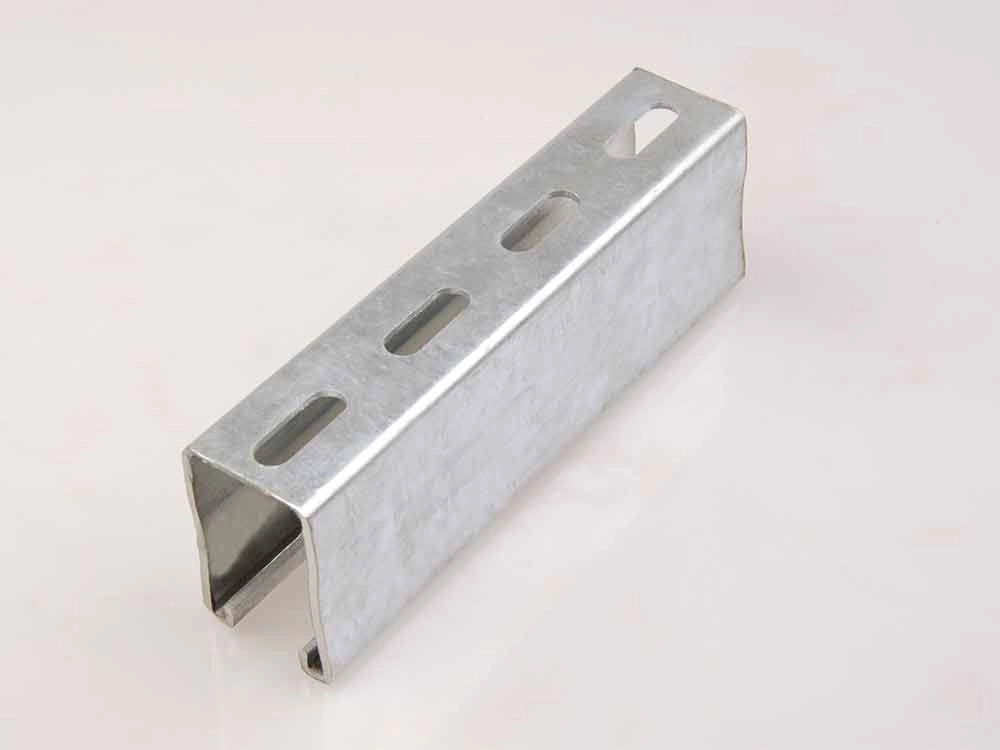
향상된 환기 및 기후 제어 옵션
가축이나 작물을 저장할 때 건강한 공기 흐름을 위해 필요합니다.Vents, louvers, 또는 절연제는 그들을 약화하지 않고 강철 창고에 설치할 수 있습니다.기후 제어는 농부가 조건을 유지하기 위해 장착할 수 있습니다. 그것은 손상을 방지하고 동물을 일년 내내 편안하게 유지합니다.
강철 창고는 지속 가능한 농업 관행을 지원할 수 있습니까?
에너지 효율적인 설계 및 절연 능력
오늘날 농장은 에너지를 절약하고 생산성을 유지하는 것을 목표로합니다.강철은 이것에 도움이 됩니다.그들은 열이나 냉각을 차단하기 위해 반사성 포일 또는 거품 패널로 열을 열을 차단할 수 있습니다.이것은 겨울에 가열하거나 여름에 냉각하도록 더 적은 에너지가 필요하므로 돈과 자원을 절약합니다.
태양광 패널 설치와 호환성
강철 지옥은 태양 전지판에 좋습니다.그들은’무게를 유지할 만큼 강합니다.CZT’s 하나의 축 추적 시스템 패널은 태양을 따라 더 많은 에너지를 잡을 수 있습니다. 강철 창고에 태양을 추가하는 것은 농장을 더 녹색으로 만들고 전력 청구서를 절단합니다.
재활용 가능성과 장기 환경 이점
강철은 지구에 친절합니다.When a shed’s 생활은 끝나고, 그 부품은 품질 손실없이 완전히 재활용될 수 있습니다.나무나 혼합된 재료는 종종 쓰레기나나폐기장에 끝납니다.그러나 강철 창고는 환경 친화적입니다.그들은’100% 재활용 가능하고 건설 중에 폐기물을 줄이고 책임있는 선택을 합니다.
왜 더 많은 농부들이 나무나 콘크리트보다 강철을 선택합니까?
구조에 대한 비용 이익 분석’s 수명
강철 창고는 나무보다 더 먼저 비용이 들 수 있습니다.그러나 시간이 지남에 따라 돈을 절약합니다.유지보수가 적고 에너지가 적고 오래 지속됩니다.보험 비용도 감소할 수 있습니다, steel’S 방화 저항.재료와 운송에 대한 낮은 비용과 사전 절단된 부품으로 빠른 건물은 강철을 예산 친화적 인 선택으로 만듭니다.
스마트 농업의 기술 통합에 적응성
스마트 농업은 센서와 자동 피더와 같은 도구를 사용합니다.이들은 설치하기 위해 고고한 장소가 필요합니다.강철 강철은 쉽게 만듭니다.Q235B 강철으로 만들어진 Purlin Connection과 같은 모듈형 부품은 농부들이 창고에 큰 변화없이 새로운 기술을 추가할 수 있습니다.
실제 예: 극단 날씨 사건에 대한 반응
호주와 같은 지역에서 폭풍은 특히 2022년 라니나 홍수 이후 악화되고 있습니다.농부들은 농업을 할 수 있는 건물이 필요합니다.직류 전기를 통한 H-전전전기광선과 Z-채널은 나무나 콘크리트보다 강한 바람에 더 잘 저항하여 농장을 안전하게 유지합니다.
CZT는 산업용 농장 산산업용 농장에서 무엇을 제공합니까?
CZT에서 우리가 누구이며 품질에 대한 우리의 약속
CZT중국의 천진에서 2013년에 시작된, 광전기 장착 시스템의 선도자입니다.우리의 공장은 28,000 평방 미터를 우리고, 연간 태양 부류의 10 기가와트를 생산합니다.우리는’re 스마트 엔지니어링을 통해 지속 가능한 농업에 대한 모든 것. 우리의 강철 농장 창고는 지속되고 농부를 만나기 위해 지어졌습니다’필요.
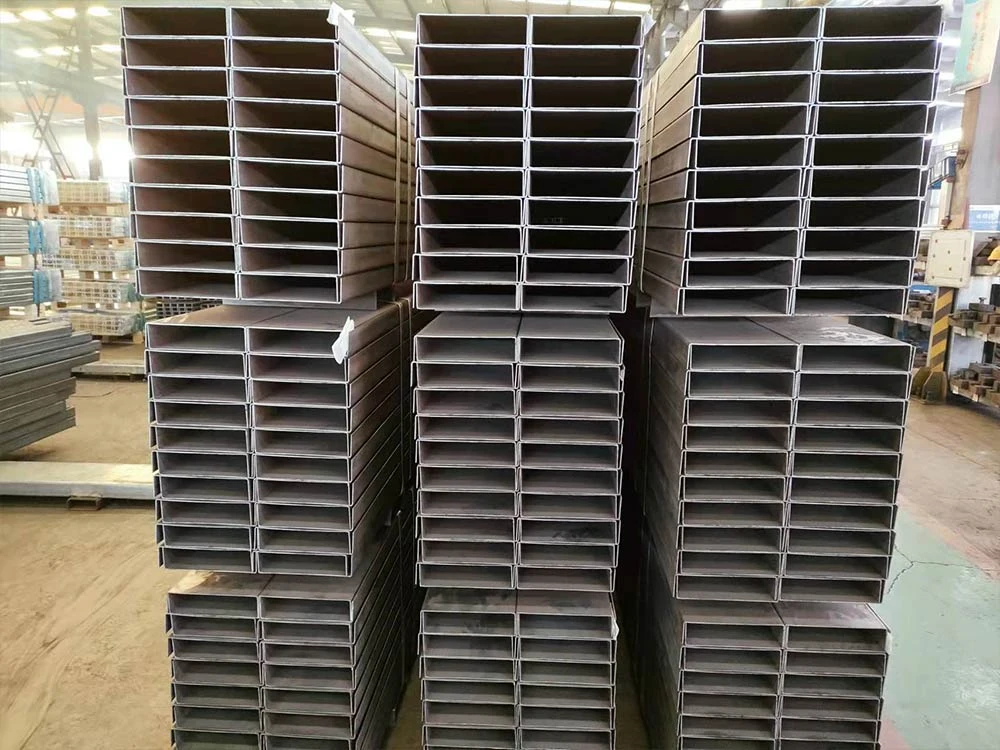
산업용 사용을 위해 맞춤형 강철 농장 우리의 범위
사용자 정의 환기 시스템을 가진 곡물 저장 장
우리의 우리의 우리우리의 우리우리의 우리우리의 우리우리의 우리 우리의 우리의 우리의 우리의 우리의 우리우리 우리의 우리우리우리의 우리우리우리 우리의 우리우리우리 우리 우리우리우리우리 우리의 우리이들은 공기를 움직이고 이이이이이이동하여 이이이러한 방식은 이이이러한 공기를 움직이고 이이이이러한 방식은 이이이러한 방식은 이러한 이러한 공기를 움직이
생물 보안 준수를 위해 설계된 가축 보호소
뜨거운 뜨거운 뜨거운 뜨뜨거운 아연 전기를 통한 H-뜨뜨거운 생물 안전 규칙을 충족하면서 청소를 쉽게 만들어 줍니다.환기와 안개 시스템은 동물들을 편안하게 유지합니다.
대형 장비를 위한 광범위한 명확한 스기를 가진 기계 대장
오메가 오메가 오오메가 오오오메가 오오오메가 오오메가 오오메가 오메가 오오메가 오오오메가 오오메가 오오오메가 오오메가그들은’방법에 포스트가 없는 큰 수확기 또는 트랙터에 충분히 넓습니다.
습기 제어를 위해 설계된 비료 저장 단위
비료는 저장하기 어려울 수 있습니다.우리의 Z 강철 채널은 저저우리우리의 Z 강철 채널은 저저저습도를 낮게 유지하기 위해 우리우리의 Z 강철 채널은 우리우리우리의 Z 강철 채널은 우리우리우리우리의 우리우리우리우리의 Z 강철 채널은 우리
호주 건물 표준 및 인증 준수
우리의 창고는 ISO 규칙에 따라 만든 Q235B/Q355B 탄소강을 사용합니다.그들은 호주를 만나고’AgriFutures Australia가 지원하는 것과 같은 시골 프로젝트에 대한 건축 코드.
증가하는 기후 도전 중에 최근 프로젝트 수행
2022년 202220220222022022022년 20222022년 2022년이러한 최대 216 km/h의 풍력과 1.4 kN/m2의 눈 부하.그들은 15 년 보증과 25 년 서비스 수명으로 제공됩니다.
자주 묻는 질문
Q: 강철 농장 창고는 전통적인 나무 창고보다 더 비싸습니까?
A: 처음에는 더 많은 비용이 들 수 있습니다.그러나 철강 창고는 시간이 지남에 따라 더 적은 유지보수와 더 긴 수명으로 돈을 절약합니다.
Q: 내 강철 농장 Q: 태양 전지판을 설치할 수 있습니까?
A: 예.강철 지옥은 강하고 CZT’ 같은 태양 산으로 잘 작동합니다;S 시스템
Q: 산업용 급료 강철 농장 창고는 얼마나 오래 지속되나요?
A: CZT에서 직류 전기를 통한 부품과 일부 관심으로, 그들은 거친 날씨에도 25 년 이상 지속될 수 있습니다.
Q: 농업 환경에서 콘크리트보다 강철을 더 잘 만드는 것은 무엇입니까?
A: Steel’유연한 S.당신은 콘크리트와 달리 물건을 콘콘크리트를 콘크콘크리트와 달리 물건을 콘크리트를 콘크리물을 콘크리트를 콘콘크리트와 달리 물건을 콘콘물물물건
Q: 강철 창고를 건설하기 위해 특별한 허가 또는 인증이 필요합니까?
A: 예.지역 규칙이 적용됩니다.CZT’s 인증된 창고는 바람과 눈 부하 등급을 포함하여 표준을 충족합니다.


